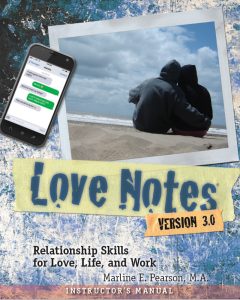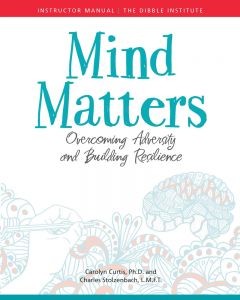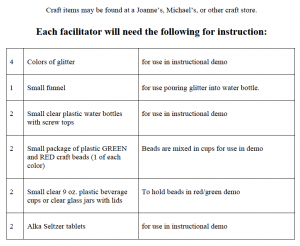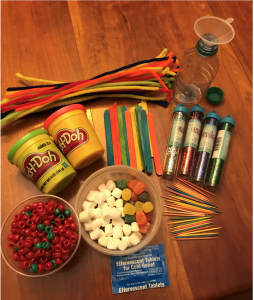The Administration for Children and Families has announced $60M in funding for Fatherhood – Family-focused, Interconnected, Resilient, and Essential (FIRE) grants. Due July 1.
- Love Notes is perfect for young fathers (18-24) because iIt builds comprehensive healthy relationship skills while helping them see their relationship life through the eyes of their child.
- Mind Matters may be used by facilitators with fathers of all ages in groups or case managers in one-on-one settings to address trauma and increase resilience
- Money Habitudes helps young fathers discover their unconscious habits and attitudes about money and serves as an important, non-technical addition to standard financial literacy programs.


Curriculum Descriptions
Love Notes: Relationship Skills for Love, Life, and Work
For a growing number of young fathers (18-24), unplanned pregnancy, single parenting, and troubled relationships derail personal goals. Love Notes 3.0 was created for this vulnerable audience. In 12 hours, they discover—often for the first time—how to make wise choices about relationships, sexuality, pregnancy, partnering, and more. Unique to this program, is its focus on helping young dads see their relationship life through the eyes of their child.
Rather than focusing on what to avoid, Love Notes builds positive skills and appeals to aspirations. It offers young men new conceptual frameworks, including the Success Sequence, to help them make informed decisions instead of sliding into unplanned choices that can derail their lives.
Love Notes is widely used with young men in many settings including workforce development, corrections, community based, and schools.
ACF is particularly interested in programs that incorporate strategies to help fathers develop skills to strengthen and manage relationships with their children and other important individuals in their lives (co-parent, employer, and family members). Healthy relationships with spouses, partners, and children can also have positive effects on employment and earnings. Likewise, employment, earnings, and economic stability can positively affect the health of relationships with spouses, partners, and children.
| Essential components of healthy marriage and relationship education |
Love Notes |
|
· Communication skills |
Yes |
|
· Conflict resolution, anger management |
Yes |
|
· Problem solving |
Yes |
|
· Knowledge of the benefits of marriage |
Yes |
Mind Matters: Overcoming Adversity and Building Resilience
In addition to workshop instruction, Mind Matters can be of great help in reinforcing parenting skills and advancing child well-being in one-on-one settings. According to ACF, strategies must include counseling and/or mentoring to address factors including the effects of toxic stress, early adverse child experiences, and trauma. (Page 46) The Mind Matters Instructor’s Manual includes instructions for both group and individual settings. To see how you teaching the program might look in a one-on-one setting, watch this Mind Matter’s Lesson on our YouTube Channel.
Fathers experiencing trauma and toxic stress often have difficulty regulating their emotional responses when facing challenges in school, life, relationships and family settings.
Mind Matters’ lessons and activities teach dads skills to respond to negative experiences with innovative methods based on current research and neuroscience. These practices give them a way to take charge of their emotions and improve their states of mind. Men learn to address their physical, relational, and mental health needs.
Mind Matters’ practical, hands-on lessons explore the effects of trauma along with the healing process. Each lesson includes activities that build resilience and increase hope.
Mind Matters addresses the following topics:
- Self-Soothing and Regulating Emotions: Cultivate a mindfulness practice
- Managing Stress Effectively: Learn to deal with intrusive thoughts
- Developing Empathy: Improve interpersonal communications
- Creating a Code of Honor: Develop a life of intention
- Building and Using a Support System: Learn how to ask for help
The skills taught in Mind Matters are designed to be practiced over a lifetime. The curriculum is not meant to be therapy or to replace psychotherapy. Rather, it is intended to be facilitated by paraprofessionals to inspire, uplift, and set people on the journey of healing as they cultivate deeper resilience.
Money Habitudes® for Young Adults 
For most fathers, spending behaviors reflect unconscious habits and attitudes that were acquired young and persist regardless of financial savvy or economic status. Money Habitudes® for Young Adults explores this phenomenon, and serves as an important, non-technical addition to standard financial literacy programs.
Understanding money is important for young dads. Even basic financial competence can improve their relationships as well as help them attain goals for lifestyle, education, career and family. But technical knowledge about money isn’t enough.
In real life, it is often hidden attitudes that dictate how people actually spend, save and think about money, regardless of financial skills or economic status. Money Habitudes® for Young Adults explores this “human side of money.”
Grant Aids
| Promote or Sustain Healthy Marriage | Love Notes | Mind Matters | Money Habitudes |
| Counseling, mentoring, disseminating information about the benefits of marriage and two-parent involvement for children |
✓ |
||
| Enhancing relationship skills |
✓ |
✓ |
|
| Education regarding how to control aggressive behavior |
✓ |
✓ |
|
| Disseminating information on the causes of domestic violence and child abuse | ✓ | ||
| Skills-based marriage education | ✓ | ||
| Financial planning seminars | ✓ |
| Responsible Parenting | Love Notes | Mind Matters |
| Understanding child development and child behaviors |
✓ |
|
| Positive communication with children and other family members |
✓ |
✓ |
| Co-parenting |
✓ |
|
| The importance of being an involved parent |
✓ |
|
| Rebuilding and/or developing trust and |
✓ |
✓ |
| Reducing family conflict and enhancing family relationships. |
✓ |
✓ |
| Love Notes | Mind Matters | Money Habitudes | |
| Improved healthy relationship and marriage skills |
✓ |
✓ |
|
| Improved parenting and co-parenting skills |
✓ |
✓ |
|
| Improved quality of father-child engagement |
✓ |
✓ |
|
| Increased frequency of father/child engagement |
✓ |
✓ | |
| Increased financial responsibility of fathers |
✓ |
✓ |
All Dibble programs are evidence-informed and many are also evidence based.
The Dibble Institute used Love Notes with non-custodial parents (mostly dads) in partnership with LA County Child Support Services.
The outcomes from that project were that
- Dads reported better relationships and communications with their co-parent
- Dads reported more contact and time with their children
- Dads started paying more child support (an increase of 26%).
- Building Brighter Futures Full Report
- Building Brighter Futures Logic Model
- Child Support: Policy and Practice Article
Read Case Studies from Dibble clients successfully using our programs in Fatherhood settings.
Fatherhood: Building Self-Sufficient and Resilient Families
2020 Funding Opportunity Announcement for Responsible Fatherhood Programs
Event Description
This webinar will discuss a range of issues organizations should consider as they design programs and prepare applications in response to the Funding Opportunity Announcement for the 2020 Responsible Fatherhood grant competition. If you miss or can’t attend a webinar, all webinars and slides will be archived on this webpage soon after the webinar.
Time/Date
2:00PM Eastern (11:00AM Pacific) on Thursday, June 4, 2020
To help people transition to online teaching, a group of Dibble clients from around the country shares and developed ideas and strategies for facilitating Dibble Programs across large and small, rural and urban communities. Their suggestions for online lesson-by-lesson implementation of our programs can be accessed by Dibble clients. There is no one way to conduct an online program. Every organization and community have different needs and circumstances. The toolkit resources simply give ideas and thoughts for online implementation needs.
Grant Planning
Please call 800-695-7975 for a training quote.
Staff development, training, and refresher training are required with this funding. It is essential to assure that your instructors deliver Dibble materials with fidelity while meeting the needs of the young people they serve. Our Master Trainers provide a highly interactive, in-depth experience for all Dibble programs.
Benefits of training your staff:
- Enhance grant performance
- Boost speed of grant implementation
- Increase confidence and competence of instructors
- Improve program fidelity
All training clients receive Technical Assistance as part of their training package. We offer two hours of complimentary consultation per organization that have held or attended a Dibble training.
COVID 19 NOTE: The Dibble Institute is planning to conduct all trainings for the remainder of 2020 in an online format or until California, where we are headquartered, allows for such gatherings and travel.
The quality of our trainings will remain high, based on our standards for excellence.
Trainings will take place under the oversight of Dr. Rachel Savasuk-Luxton, Director of Training and Research. A Dibble Master trainer will facilitate the training over five consecutive days (M-F) for 3.5 hours each day, the equivalent of a three day training. In addition, trainees in virtual sessions will be given pre-work and daily assignments to complete in order to enrich the training time.
Count on us to be on your team!
In support of the grant requirement that grantees “Use technical support provided by the developer (to help support implementation fidelity),” we are pleased to provide you with a team of experts to help assure the success of your funded program.
The Dibble Institute has successfully provided relationship skills education in a variety of venues with diverse populations for years. We have managed large federal grants and we have sat on federal grant review panels. We are happy to share our expertise so you can be successful as well!
Our staff will consult with you to develop effective:
- Grant and program implementation approaches,
- Partner and participant recruitment strategies,
- Program adaptations,
- Evaluation plans, and more.
We meet you where you are and deliver these services in a variety of ways – email, ZOOM, conference call, in person – whatever works best for you. You may want to join our small groups of client organizations working in similar settings for even greater synergy.
Our Technical Assistance Clients include:
- Hundreds of federal, state, and local grantees
- IFC International
- Mathematica Policy Research
- Public Strategies, Inc.
- Urban Institute
- Cliexa
All training clients receive Technical Assistance as part of their training package. We offer two hours of complimentary consultation per organization that have held or attended a Dibble training. Additional consultation is offered on a either a retainer or hourly basis.
Download the Fillable PDF of the Materials and Training Agreement

1 All facilitators and participants must have their own sets of materials with the exception of the MH cards, which are reusable.
2 Please note that Love Notes and Relationship Smarts Plus implementation also requires craft supplies that could total up to $200.
3 If your organization has a Dibble Certified Trainer, please call us to create a custom training plan.
The Dibble Institute is pleased to sign an MOU with you as part of your grant application. To help us understand your plans, please send an email to Aaron@DibbleInstitute.org with the following information:
- Your completed Training and Materials Agreement
- What program(s) you plan to use
- A brief overview of your project – setting, youth targeted, proposed timing of instruction (how many hours/days/weeks), number of youth reached, and instructional hours
- Recruitment/retention plans to keep 90% engagement
- Evaluation approach and research question(s), if including
- How you plan to implement with fidelity and what adaptations, if any, you propose.





